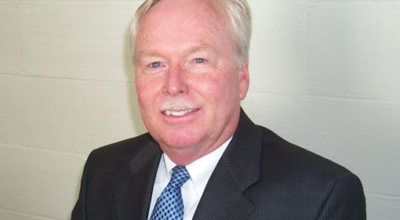The YMCA — yesterday, today, tomorrow … for good
Published 8:53 am Tuesday, March 13, 2012
Editor’s Note: This article was written by Emory Smith, a YMCA staff member
In 1844, industrialized London was a place of great turmoil and despair. For the young men who migrated to the city from rural areas to find jobs, London offered a bleak landscape of tenement housing and dangerous influences. Twenty-two-year-old George Williams, a farmer-turned-department store worker, was troubled by what he saw. So, he gathered together 11 young men seeking escape from these bad influences. They called this group the “Young Men’s Christian Association” (YMCA). They originally joined together with “the view of uniting and directing the efforts of Christian young men for the spiritual welfare of their fellows.”
Although an association of young men meeting around a common purpose was nothing new, the Y offered something unique for its time. The organization’s drive to meet social need in the community was compelling, and its openness to members crossed the rigid lines separating English social classes.
A few years later, retired Boston sea captain Thomas Valentine Sullivan, working as a marine missionary, noticed a similar need to create a safe “home away from home” for sailors and merchants. Inspired by the stories of the Y in England, he led the formation of the first U.S. YMCA at the Old South Church in Boston, Mass., on Dec. 29, 1851. In 1853, the first YMCA for blacks was founded by Anthony Bowen, a freed slave, in Washington D.C.
By 1854, from what had started 10 years earlier as a small group of young men, there was now an international movement — with 397 YMCAs in seven nations and 30,369 members. The focus of the YMCA grew from the spiritual development of young men to the development of spirit, mind and body for men and women … and people of all nationalities and creeds. It became a place where families could grow and where young people could come to develop a sense of purpose in their lives.
For many of us who grew up in the Y, the YMCA is the where our identities were formed and where our lives became outwardly focused toward serving others. In gratitude, some of us would come back as adults to coach YMCA soccer or basketball, others would loyally serve on YMCA Boards, and still others would enter the YMCA profession wanting to “give back” to the YMCA so that young people could have the same types of opportunities that we had experienced. That is why, when I got a call from Mike Haynes in January to come to come help at the YMCA after being away for 10 years, it didn’t feel like a job offer. To me, it felt more like a call to a wayward son that it was time to return home.
When you hear YMCA directors of my generation talk about the YMCA, you won’t hear us talking about “working for the YMCA” or “being in the YMCA profession.” Instead, you will hear us talk about being “in the YMCA movement.” That is because the YMCA is more than just a place. It is an idea … that people can still come together for the common good … that there can be a safe place for children to grow and develop … that barriers of sex, race, nationality and creed can be overcome … and that we all can see the importance of developing our spirits, minds and bodies.
In 1986, the Bainbridge-Decatur County YMCA was founded on the same ideas. Through our programs, we strive “to put Christian principles into practice through programs that build a healthy spirit, mind and body for all.” Saturday, March 31, we will hold a “Spring Clean Up Day at the YMCA” and we would love for you to be a part. Come and join us as we celebrate our 25th anniversary year of service. And, who knows? You, too, may discover that the YMCA is “more than just a place.”
Mike Haynes is the interim CEO of the Bainbridge-Decatur County YMCA. He can be reached at (229) 243-0508.





